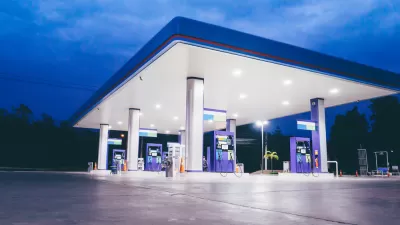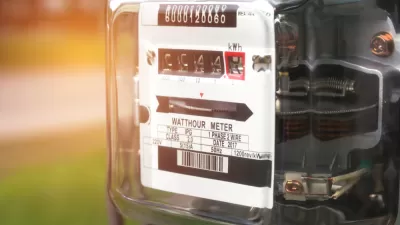Preventing gas tax and vehicle registration fee revenues from being used for non-transportation purposes is seen as key to increasing transportation revenue, be it through raising gas taxes or approving new revenue options, in Maryland and Wisconsin.
"For two decades, governors in Wisconsin have diverted revenue from the fuel tax and license and registration fees to government functions other than transportation," writes Transportation Topics staff reporter Michele Fuetsch.
Most states have some sort of lock on the transportation funds that they generate through fuel taxes, but as a 2011 survey by the American Association of State Highway and Transportation Officials found, the locks are not tamper-proof.
Connecticut legislators "tried and failed to (pass) a bill that would have put a constitutional amendment on the ballot to prevent diversions from the transportation fund. “We’re sick and tired of having some of the highest fuel taxes in the country and the worst roads,” said Michael Riley, president of the Motor Transport Association of Connecticut."
“The money that we’re paying for highway user fees is being diverted regularly to general fund expenses,” Riley said.
“When you pay your licensing fee, your car registration, those types of things, that’s what the intended purpose is, and when they’re not used for that, people find out and they get upset,” said Rep. Keith Ripp, chairman of the Wisconsin House Transportation Committee.
Ripp said policymakers will have to consider everything from tolling to higher fuel taxes and registration fees to raise that amount, “but first we have to protect that fund.”
"Governors and lawmakers tapped Maryland’s transportation fund to avoid making hard tax decisions about how to pay for other government functions," said Maryland State Sen. James Rosapepe, "who sponsored the bill that advanced the proposed constitutional amendment to the ballot," writes Fuetsch.
However, in many, if not most states, the opposite may be more likely the case as general funds are used to make up gas tax revenue shortfalls that have not seen gas tax increases in decades.
According to the Institute on Taxation and Economic Policy's April report, "Among the thirty-two states levying a “fixed-rate” gas tax, the average length of time since the last gas tax increase is 17.2 years. Sixteen states have gone two decades or more without a gas tax increase."
Maryland increased its gas tax by four cents in July last year to 27-cents, now 25th highest in that nation, as a result of new legislation spearheaded by Gov. Mark O'Malley.
Wisconsin's 32.9-cent gas tax, 15th highest in the nation, was last increased eight years ago. [See API (PDF)].
If the federal Highway Trust Fund is any model, locking up gas tax revenue in a trust fund, protected by constitutional amendment, is no guarantee that gas taxes will be raised. In the patch bill known as H.R. 5021 - Highway and Transportation Funding Act of 2104, $10.9 billion of general fund revenue will be transferred to the Highway Trust fund - for ten months.
Before that bill was passed on July 31, "over $55 billion in general fund revenues (not including stimulus funding)" was transferred to the Highway Trust Fund since 2008, wrote Joshua L. Schank, president and chief executive of the Eno Center for Transportation in a recent New York Times op-ed posted here.
FULL STORY: Voters in Wisconsin, Maryland to Decide on Better Protections for Transport Funds

Alabama: Trump Terminates Settlements for Black Communities Harmed By Raw Sewage
Trump deemed the landmark civil rights agreement “illegal DEI and environmental justice policy.”

Study: Maui’s Plan to Convert Vacation Rentals to Long-Term Housing Could Cause Nearly $1 Billion Economic Loss
The plan would reduce visitor accommodation by 25% resulting in 1,900 jobs lost.

Planetizen Federal Action Tracker
A weekly monitor of how Trump’s orders and actions are impacting planners and planning in America.

Restoring Northern India’s Himalayan ‘Water Temples’
Thousands of centuries-old buildings protect the region’s natural springs and serve as community wells and gathering places.

Milwaukee to Double Bike Share Stations
Bublr Bikes, one of the nation’s most successful, will add 500 new e-bikes to its system.

DC Extends Application Window for Outdoor Dining Permits
District restaurants will have until the end of November to apply, but businesses with permits in rush hour parking lanes must end operations on July 31.
Urban Design for Planners 1: Software Tools
This six-course series explores essential urban design concepts using open source software and equips planners with the tools they need to participate fully in the urban design process.
Planning for Universal Design
Learn the tools for implementing Universal Design in planning regulations.
Caltrans
Smith Gee Studio
Institute for Housing and Urban Development Studies (IHS)
City of Grandview
Harvard GSD Executive Education
Toledo-Lucas County Plan Commissions
Salt Lake City
NYU Wagner Graduate School of Public Service




























